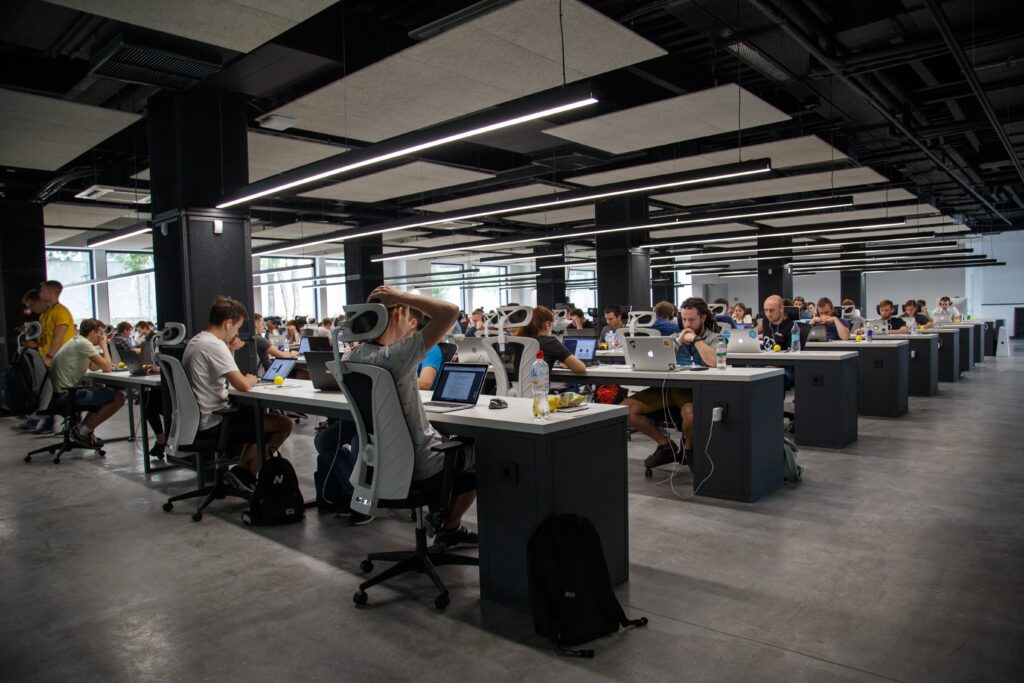An average office worker spends 30-50% of their time in front of a computer creating, reconciling, and analysing reports. While such formal work is not considered risky or inherently dangerous compared to casual labour, over time it can take its toll on our physical and mental health. So, how can you stay healthy at work and maintain a balanced lifestyle in the office? This article explores the risks associated with working in an office and offers tips on how to mitigate them.
1. Combating the sedentary lifestyle: Packing healthy lunches & snacks
Our body’s metabolism gradually slows down as we age, which is why we tend to gain weight and lose muscle as we get older. However, office workers who spend endless hours sitting at a desk suffer a worse fate. This is because they’re always snacking on processed foods with high amounts of sugar and fat. These poor eating habits result in unhealthy weight gain, obesity and lifestyle diseases such as diabetes.
To combat the risk of obesity while pursuing a desk job, integrate a healthy, balanced diet into your daily regimen. To be more healthy at work, take your own lunch to work when possible or choose healthy options from the staff canteen. If you are an employer, you can encourage healthy eating habits in the workplace by providing a fridge for employees to bring in healthy lunches, subsidising healthy food and drink options from your staff canteen, and replacing sugary drinks with more healthy options. Poor eating habits can also take its toll on office productivity for many businesses, so it is useful for employers to promote healthy eating in the workplace.

2. Risks when sitting at your desk: Avoiding chronic back pain & neck strains
The human body is not designed for long hours of immobility and passivity. Therefore, spending at least 40 hours a week sitting in front of a desk often results in the early onset of back pain and spinal complications. Additionally, hunching and slouching in front of a computer all day strains the delicate neck muscles, causing neck pain that never seems to go away. Other than spinal complications, research shows that people who sit for most of the day are also more likely to have heart problems. To improve your health and wellbeing in your office job, here are some useful tips:
- Create a comfortable workplace by investing in an ergonomic chair (with lumbar support and adjustable height and width)
- Be more healthy at work by taking regular breaks during the day
- Exercise daily
- Practise yoga to improve spinal alignment and improve flexibility
3. Staying healthy at work: Avoiding eye strain with regular breaks & less screen time
We live in a world of flickering screens from smartphone displays to HDTVs, and if you work in an office environment, the time you spend in front of harmful screens increases sevenfold. Spending long hours in front of a computer has contributed to the unprecedented rise in visual disorders such as Computer Vision Syndrome (CVS). This particular condition manifests itself through blurred vision, severe eye irritation, and acute headaches. The blue light emitted by electronic screens also messes with your natural circadian rhythm, so ensure that you have a pair of blue-light-blocking glasses.
To help combat eye strain from screens, it can be useful to add regular breaks to your office routine. The 20-20-20 rule can help you be more healthy at work by helping you incorporate micro breaks at your desk. Try it by looking twenty feet away, for twenty seconds, every twenty minutes. Every hour of work you could also get up away from your desk to stretch your legs or get some fresh air. If you are concerned about your eye health and need advice on eye conditions or laser eye surgery, the UK’s leading vision correction specialists at Ultralase can help.
4. Prioritising your mental health: managing stress & work-life balance
Other than physical stresses, working in an office environment can put a strain on your mental health. Work stress arises when work demands exceed an employee’s capacity and capability to cope. It can manifest itself both physically and psychologically through headaches, fatigue, insomnia, irritability, anxiety, and much more. In a stressful office job, workers should learn how to take a break from work and when to seek help from managers.
If you are struggling with mental health in the workplace and need more advice on how to stay healthy at work, focus on creating a better and more healthier work-life balance. Stop doing work outside of office hours and spend your breaks away from your emails and your desk. One of the big things to avoid is having lunch at your desk as you need to be able to properly switch off for your break. Exercising, eating healthily, getting enough sleep, and meditating can also help you cope with work stress.